Parents Make the Difference
Parents Make the Difference
Nourishing Literacy Development through Shared Book Reading
Susan Voorhees
Rowman & Littlefield
Lanham Boulder New York Toronto Plymouth, UK
Published by Rowman & Littlefield
4501 Forbes Boulevard, Suite 200, Lanham, Maryland 20706
www.rowman.com
10 Thornbury Road, Plymouth PL6 7PP, United Kingdom
Copyright 2014 by Susan Voorhees
All rights reserved . No part of this book may be reproduced in any form or by any electronic or mechanical means, including information storage and retrieval systems, without written permission from the publisher, except by a reviewer who may quote passages in a review.
British Library Cataloguing in Publication Information Available
Library of Congress Cataloging-in-Publication Data
Voorhees, Susan, 1961
Parents make the difference : nourishing literacy development through shared book reading / Susan Voorhees.
pages cm
Includes bibliographical references.
ISBN 978-1-4758-0321-1 (pbk. : alk. paper) ISBN 978-1-4758-0322-8 (electronic) 1. Reading (Early childhood)Parent participation. I. Title.
LB1139.5.R43V66 2014
372.4dc23
2014006101
 The paper used in this publication meets the minimum requirements of American National Standard for Information SciencesPermanence of Paper for Printed Library Materials, ANSI/NISO Z39.48-1992.
The paper used in this publication meets the minimum requirements of American National Standard for Information SciencesPermanence of Paper for Printed Library Materials, ANSI/NISO Z39.48-1992.
Printed in the United States of America
Dedicated in memory of my mother my first teacher
Preface
Young children are complex, literate human beings. Just sit and watch preschoolers interact for a few minutes with their environment; you can almost see their minds developing as if you were watching through the lens of a time-lapse camera. Given any situation, young children naturally problem solve as they navigate everyday interactions, making sense of the world around them as they develop literacy competence and performance.
Parents are natural facilitators of their childrens literacy development. Parents create all sorts of daily home and community routines that provide a positive and effective influence on their youngsters literacy learning. Grandparents or other consistent caretakers are equally important and often provide the same types of literacy activities. Today, it is common knowledge in the education field that there is a very strong connection between the home environment and childrens language and literacy development.
However, I first learned of this connection when I was just completing my undergraduate degree, in 1983. This is when an educator by the name of Denny Taylor first came up with the term family literacy based on her three-year study observing six families with young children who were successfully learning to read and write . Family literacy can be defined as the different ways parents, caretakers, and extended family engage in authentic literacy activities at home and in the community (Morrow, Paratore, and Tracey 1994). These home literacy practices might include something as simple as using lists for grocery shopping to the more sophisticated activity of shared book reading. This is when parents or other caretakers read aloud to children; sometimes it is referred to as lap reading . The concept of family literacy caught the attention of many educators, including me, as Dr. Taylor and many others continued to expand on this field of study for many, many years to come.
My first teaching position after completing my undergraduate degree was as a kindergarten teacher, and I naturally began to relate the ideas of family literacy to my observations and interactions with my school children and their parents. The variation in my kindergarteners literacy development was vast. On one end of the spectrum, there were students like Suzanne; she was already conventionally reading and viewed herself as a reader. Suzanne loved story time and any other literacy activity. On the other end, there were children like Alison; she seemed to struggle and stress over learning the letters of the alphabet. From the very beginning of the year, Alison was disengaged during story time, and certainly, she didnt view herself as competent when it came to any literacy tasks.
Additionally, some of my parents were very involved; other parents not so much, but almost every parent asked me the age-old question, How can I help my child learn to read? I gave what had become, and still is, the universal response, Read to them. Yet, even back then, I felt this was inadequate; I have always believed this question from parents needed to be given a more thoughtful, detailed response than a perfunctory three-word answer. Parents and their children deserved more. Yet, at that time, I didnt have further recommendations to offer.
This feeling of inadequacy in my response lingered, and as I continued my graduate work in literacy education, and then began my doctoral studies in reading, language, and cognition, I would often share my displeasure with my peers about this three-word answer to parents. Finally one day, my doctoral professor abruptly interrupted me and said, You now have the knowledge; you should stop complaining and do something about it.... Start providing workshops for parents as reading partners. And so I did.
At first, I was unsure about how well I would be received by the parents during these workshops, but I quickly found that parents have a thirst for literacy knowledge. What better motivator was there than for parents to understand how to guide their children to become life-long readers? So my workshops addressed many complex concepts. My goals included increasing parents understanding of reading, introducing parents to book reading techniques and strategies for both narrative and informational text, and connecting reading practices with state and national standards. The parents easily grasped these ideas, and I believed I was making a difference. The possibilities were endless as I engaged in parent education.
Very interested in the early years of literacy development, I also decided to write my dissertation about parents behaviors during shared book reading and how their behaviors affect their young childrens reading development. My research documented how parents beliefs about reading influenced their reading practices with their children. In turn, their children were predisposed to having the same reading beliefs and practices. It was amazing to see such similarities. As a literacy-education professor for the past sixteen years, in each of my courses, I have continued to promote the important role of parents and the influence they have on their children.
From the beginning of life, parents provide nourishment to their children and teach them good health habits to prevent later health problems. This same thinking should follow for literacy development. Language and literacy development begin from the first day a child is born. If children are not provided with appropriate language and literacy experiences from the beginning, they are at risk of being cognitively and affectively malnourished .
Ive provided reading intervention for many children who had not developed effective reading behaviors, but I found the longer children practice poor habits, the more challenging it is to help them. These children do not identify themselves as readers because they have been unsuccessful for years. The key point of this book is that it is far more effective and inspiring to nurture young childrens literacy development than to rely on reading intervention later on in their lives. This book is about a proactive response to prevention to avoid later reading intervention . Early-childhood-education teachers are responsible for part of childrens literacy nourishment, but parents are equally responsible.
Next page


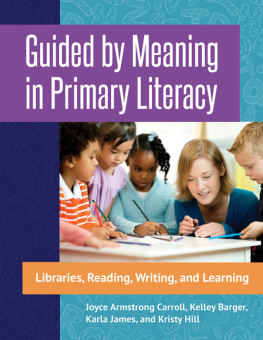
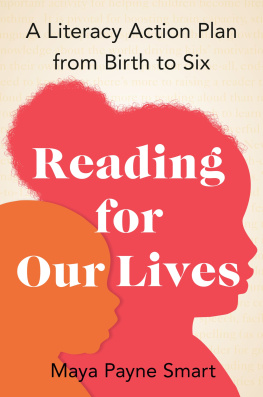
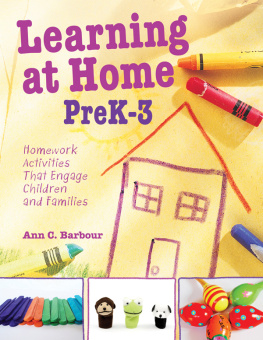
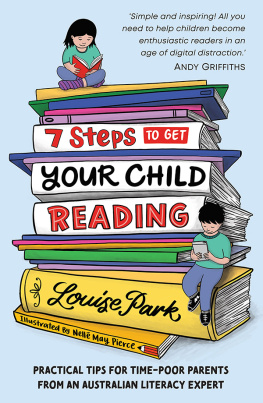
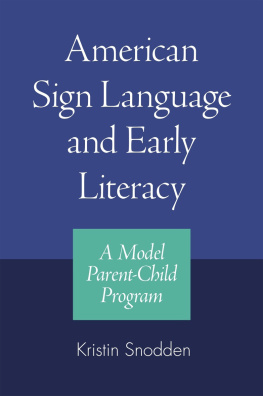
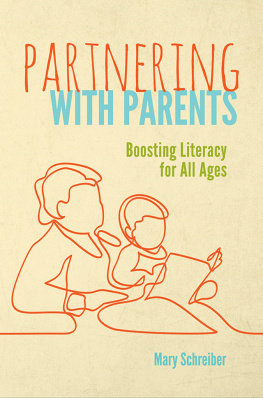
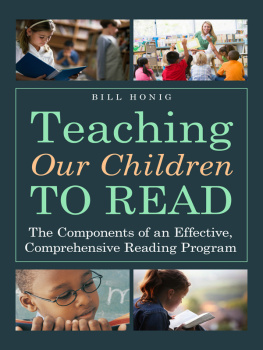
 The paper used in this publication meets the minimum requirements of American National Standard for Information SciencesPermanence of Paper for Printed Library Materials, ANSI/NISO Z39.48-1992.
The paper used in this publication meets the minimum requirements of American National Standard for Information SciencesPermanence of Paper for Printed Library Materials, ANSI/NISO Z39.48-1992.